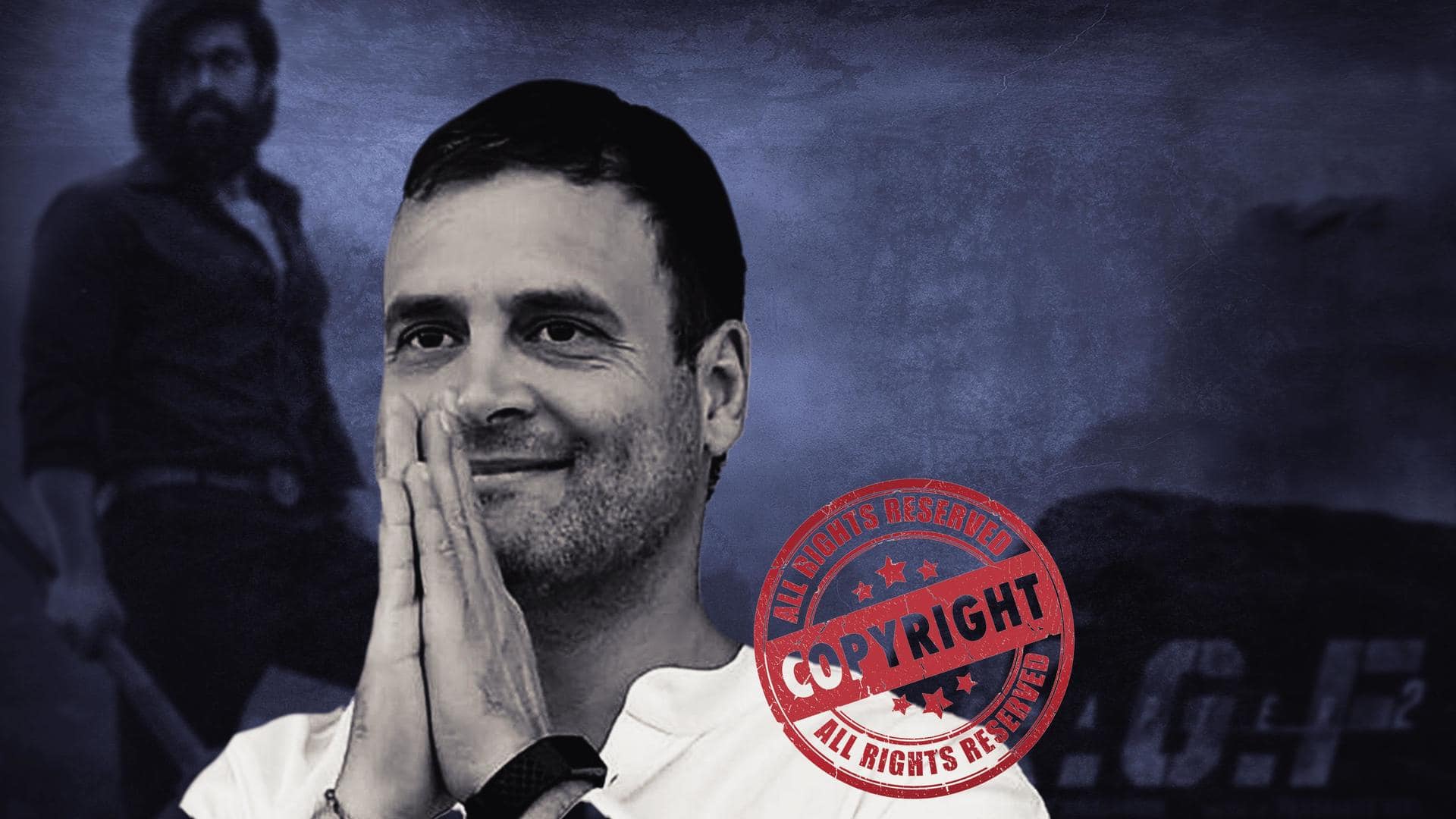
#NewsBytesExplainer: About Copyright Act, which puts Congress in a bind
What's the story
The Congress has been in a fix after a Bengaluru court on Monday directed Twitter to temporarily block the official accounts of the party and its Bharat Jodo Yatra over copyright infringement.
It is accused of illegally using music from the film KGF 2.
The order—which came after a complaint by MRT Music—puts a spotlight on India's Copyright Act.
We explain more about it.
About
How do we define copyright?
Indian law grants copyright—a kind of protection for intellectual property—to creators or authors of original works.
Dramatic, musical, and artistic works; cinematographic films; and sound recordings are some of the categories for which copyrights are awarded.
Moreover, literary works, such as computer programs, compilations, computer databases presented in codes, words, schemes, and any other format, including machine-readable media, are also covered under the law.
Legal provisions
Provisions of India's Copyright Act
India's Copyright Act of 1957 safeguards expressions of ideas by original creators instead of ideas themselves.
Copyright protection is granted under the Act's Section 13, with exclusive rights provided under Section 14.
These rights—including the ability to adapt, reproduce, publish, translate, and communicate to the general public the copyrighted material, among other things—can be exercised by copyright holders or someone licensed by the owner.
Protection
Only original works get protection, not plagiarized ones
Any original literary, artistic, musical, or dramatic works, as well as film and sound recordings, are protected under the Copyright Act.
However, such material cannot be plagiarized, as indicated by the term "original work"
The creation of any original work itself initiates copyright protection, while its registration is optional, as per Legal Service India.
However, getting copyright registrations is always advised for better protection.
Information
'First owner' rule exception under the law
The first owner of the copyright of any original work is its author or creator, as stated in Section 17 of the Copyright Act.
However, as an exception to this rule, the Act also provides that when an employee creates an original work for their employer, the latter becomes the owner of the copyright in such instances and not the employee.
Punishment
Copyright Act 1957 makes infringement cognizable offence
Copyright infringement is a punishable offense under the Act. Violators can face up to three years in prison and a fine of at least Rs. 50,000 and up to Rs. 2 lakh.
The Act also allows for civil remedies such as issuing a warning or injunction, paying damages, and splitting the costs of legal proceedings and profits with the original's creator, among others.